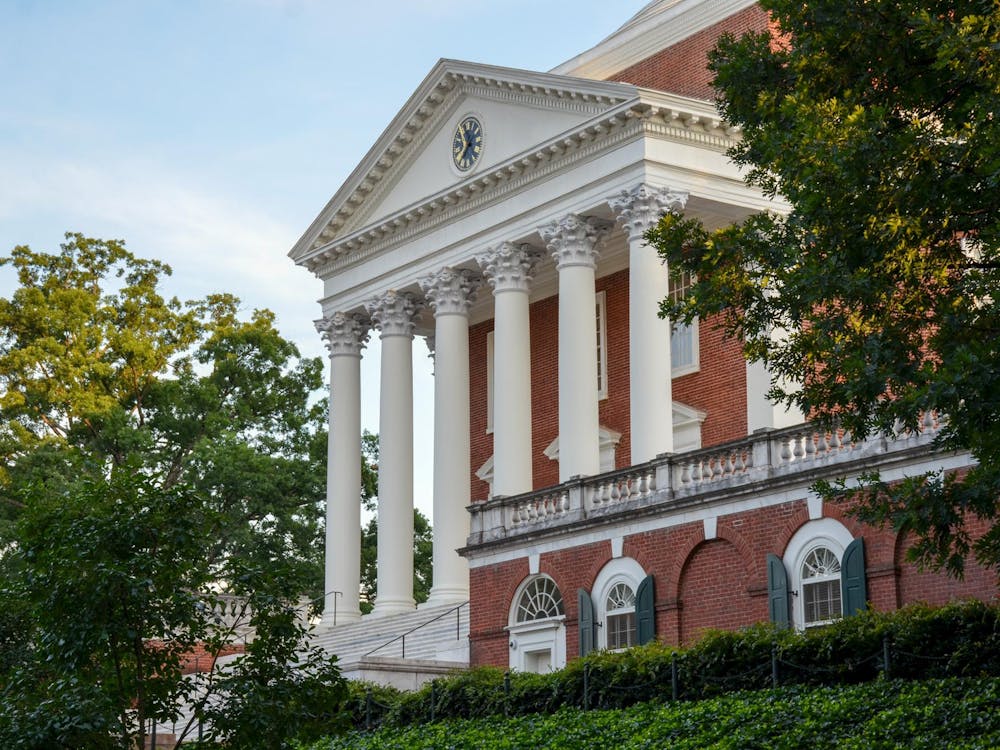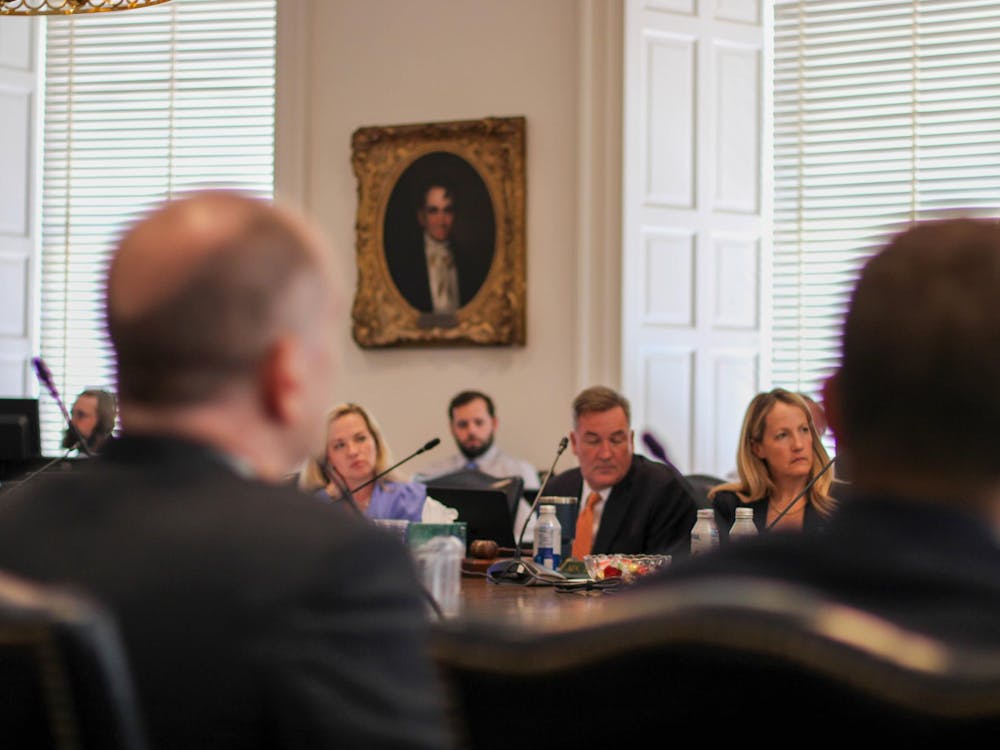AMOST 25 years ago I wrote a commentary for The Cavalier Daily that introduced me to Bob Canevari and changed the course of my life. At the time, I was president of my fraternity and had inherited a place on the executive committee of the Venable Neighborhood Association from my predecessor. He had been placed on the committee ostensibly for student-neighbor communication in the wake of a transgression our fraternity has committed against our neighbors.
Once on the Committee, I became better educated than most students on the issues facing the neighborhood. I found myself empathetic to the neighbors' plight and wrote a commentary for The Cavalier Daily arguing the legitimacy of a number of their concerns. I cannot recall today precisely what I wrote.
Apparently, my comments were unusual enough that, after he read it, Dean Canevari decided he wanted to meet the student who would write such heretical stuff. He called me, and we set an appointment for me to meet him at his office. When I met him, I was immediately struck by his manner. I'm not sure what I expected, but this wasn't it. He didn't speak down to me, or at me, or even to me. He spoke with me. That might sound trite to some, but it's an accurate description of what happened. He drew me out through the consideration of my ideas and made me feel they were worthwhile. He has a natural collegiality that invites participation. His self-effacing honesty, the ease of his smile, and his sense of humor are disarming and bind you to him very quickly. I've come to realize that these are rare attributes.
However, he isn't open to manipulation; he has his own thoughts. But it's clear that one of his goals is getting others, especially students, to participate in the process at hand. He does so by soliciting opinions and ideas and then countering through a series of questions and restatements looking for connections and developing consensus. I didn't know it then, but I was to see this essentially Socratic method of his at work many times over during the next few years. At that meeting, we found common ground in our views on fraternities and the neighborhood, and he asked me to serve on the planning committee of Easters.
The following year, I was in graduate school. One day I was making a peanut butter sandwich while searching through the classifieds looking for a part-time job when the phone rang. It was Bob Canevari asking for me. He told me that he had just received funds for a graduate assistantship to work with fraternities and sororities and asked if I would be interested in the position. I accepted, and a year later I was hired as a full-time assistant dean to work not only with fraternities and sororities but also with Lambeth Field apartments and on editing the student handbook. In all, I spent nearly five years working for Canevari.
We developed a coordinated approach to the administration of Greek life at the University, maybe for the first time. Some of our initiatives for fraternities and sororities were successful, and I believe that we made a contribution to the quality of Greek and student life.
But that's only one of the many areas of student life relevant to the Office of the Dean of Students. Working in that office was a very busy and exciting time in my own life. In many ways, the first place I ever worked was the best place I ever worked. Some of that was due to my own youthful enthusiasm, but most of it was directly attributable to Canevari. The chance to work with Canevari and Sybil Todd is one of the developmental milestones of my life. I'm not certain I understood that at the time. They accepted me as a colleague, and very quickly I became a part of the Dean of Students office. I got to participate in significant decisions and events. Most importantly, there was a free exchange of ideas and viewpoints. They listened to me. In some ways, I was spoiled. Later, when I worked at another major American university, I found out that things could be very different. There, fear was used as a motivating factor, and unhappy staff members looked for a way out.
I learned much from Canevari. He is a man of process. Time and time again I saw him pull meetings back on track using very few words, usually phrased as questions. And I learned inclusion and patience for others as he remained patient even in contentious situations. Only one time in five years, when he and I disagreed over some now-forgotten issue, did he ever have to order me to do things his way.
One thing I learned from him, that he probably isn't even aware of, is how to deal with arrogance. Canevari is the antithesis of arrogance, but for me he is also the antidote. There are many fine people associated with the University of Virginia, but there often seems to be some arrogant student, faculty member, or alumnus to contend with. I've seen him face such people in meetings many times. He remains courteous and focused on the issue at hand. To me, it's as if he knows that arrogance is one sure sign of a fool. The more arrogant the people, the less self-awareness they possess. Canevari simply allows the fools to play their cards while he retains his dignity. Conversely, you can read the compassion on his face for the injured, the underdog, or the disenfranchised.
But he isn't a stiff. He has a great sense of humor and can tell good stories and jokes and laugh at himself and the absurdities of the situations we often face. At the end of most days there was some sort of humorous decompression from the stress of the day. That refreshed me and made it much easier to come back the next morning.
Integrity is the quality I often hear cited in reference to Canevari by those who know him--and with good reason. At the risk of sounding hyperbolic, I must say that Bob Canevari is probably the best man I've ever known. I honestly can't think of anyone better. He has been a role model for me, and I owe him a great deal. I am a different man today for having known and worked for him.
I'm sure the University community appreciates him and is sorry to see him retire. But I'm not certain people really understand his importance to the community over these last three decades of unprecedented change. His work hasn't been visible the way a publication or research project might be, but he has contributed significantly to the University community and to the well-being of students. At many universities, if not most, the position of Dean of Students is merely a stepping stone to higher positions for professionals who have no particular loyalty to an institution and see students as merely another annoyance to contend with in the upper arc of a career. Canevari was from U.Va. and reveled in the students. Students were his career. There will probably never be another Dean of Students like him.
Students go to class every day to learn some subject or another, sometimes from distinguished faculty members. But over the last 30 years, both students and colleagues who came into contact with Bob were being taught by example and influenced by his direction and actions, whether they were developing some particular program or just talking with him on the sidewalk. He had an uncanny sense of the student experience, and he made a purposeful effort to make it better. He should be thanked and remembered for it.
Yesterday afternoon, Dean of Students Bob Canevari left his office in Peabody Hall for the last time. He wanted no fanfare and no farewell event, and that was his prerogative. In fact, he will probably be embarrassed by these comments. He knows that eventually everyone has to move on, and it's just his turn. But that doesn't mean we shouldn't recognize his contribution, and not merely his service, and thank him and tell him "Well Done."
(Peter Stoudt is a graduate of the University. He was Asst. Dean of Students from 1977-80, and 1986-87.)






